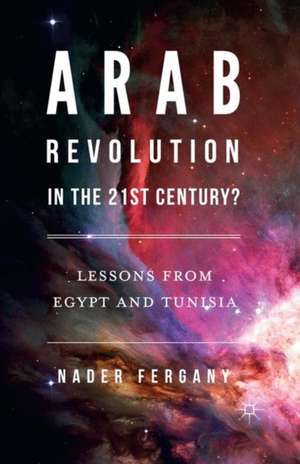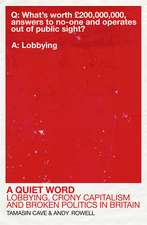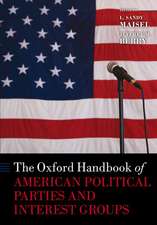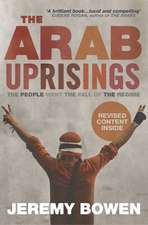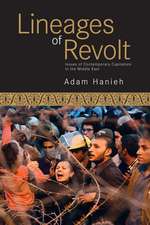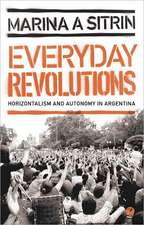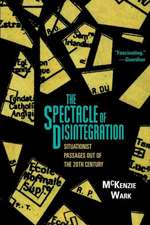Arab Revolution in the 21st Century?: Lessons from Egypt and Tunisia
Autor Nader Ferganyen Limba Engleză Paperback – 27 aug 2016
| Toate formatele și edițiile | Preț | Express |
|---|---|---|
| Paperback (1) | 381.43 lei 6-8 săpt. | |
| Palgrave Macmillan US – 27 aug 2016 | 381.43 lei 6-8 săpt. | |
| Hardback (1) | 387.58 lei 6-8 săpt. | |
| Palgrave Macmillan US – 28 ian 2016 | 387.58 lei 6-8 săpt. |
Preț: 381.43 lei
Nou
Puncte Express: 572
Preț estimativ în valută:
72.99€ • 79.53$ • 61.50£
72.99€ • 79.53$ • 61.50£
Carte tipărită la comandă
Livrare economică 23 aprilie-07 mai
Preluare comenzi: 021 569.72.76
Specificații
ISBN-13: 9781349995356
ISBN-10: 1349995355
Pagini: 198
Ilustrații: XVII, 215 p.
Dimensiuni: 140 x 216 x 12 mm
Greutate: 0.26 kg
Ediția:1st ed. 2016
Editura: Palgrave Macmillan US
Colecția Palgrave Macmillan
Locul publicării:New York, United States
ISBN-10: 1349995355
Pagini: 198
Ilustrații: XVII, 215 p.
Dimensiuni: 140 x 216 x 12 mm
Greutate: 0.26 kg
Ediția:1st ed. 2016
Editura: Palgrave Macmillan US
Colecția Palgrave Macmillan
Locul publicării:New York, United States
Cuprins
Introduction PART I: ALT, STATE AND PROSPECTS 1. State of the Arab Liberation Tide: Origins, Features, Extent of Success of Popular Uprisings, Implications, and Future Prospects. 2. Why Did the Arab Popular Uprisings Erupt? 3. To Falter or Not to Falter, Lessons from Egypt and Tunisia 4. Injustice Persists, Even after ALT Popular Revolts 5. The Worst Case Scenario, Protracted Regional War Likely to Escalate and a Fragmented New Map of the Region 6. Two Additional Major Impediments to Sustainable Human Development PART II: CONTOURS OF THE HUMAN RENAISSANCE SCENARIO Introduction 7. Essential Features of a Human Renaissance Path Conclusion
Notă biografică
Nader Fergany is Director of the Almishkat Center for Research in Cairo, Egypt, and Founding Lead Author of the Arab Human Development Report, 2002-2005, UNDP and AFESD. He obtained his BS from Cairo University, Egypt, and his PhD from the University of North Carolina, USA.
Textul de pe ultima copertă
In Arab Revolution in the 21st Century?, Nader Fergany presents a compassionate analysis of the Arab popular uprisings in the 21st century, with particular reference to the cases of Egypt and Tunisia. Under authoritarian rule, relentless injustice creates the objective conditions for expressions of popular protest which may culminate in popular uprisings, as witnessed in many Arab countries at the end of the first decade of the 21st century. Unsurprisingly, the slogans of the Arab Liberation Tide (ALT) popular revolts centered around freedom, implying sound democratic governance, social justice, and human dignity for all. In reality, the short-lived governance arrangements which followed the January 2011 popular revolt in Egypt, for example, were little more than extensions of the authoritarian governance system the revolt set out to overthrow. There were differences, of course, between the three short-lived regimes that took power since then, but in form, rather than substance. This book uses a structuralist political economy framework rather than a detailed historical account as it considers how the ALT may prove to be an historic opportunity for human renaissance in the Arab World – or alternatively a disaster of epic proportions.
